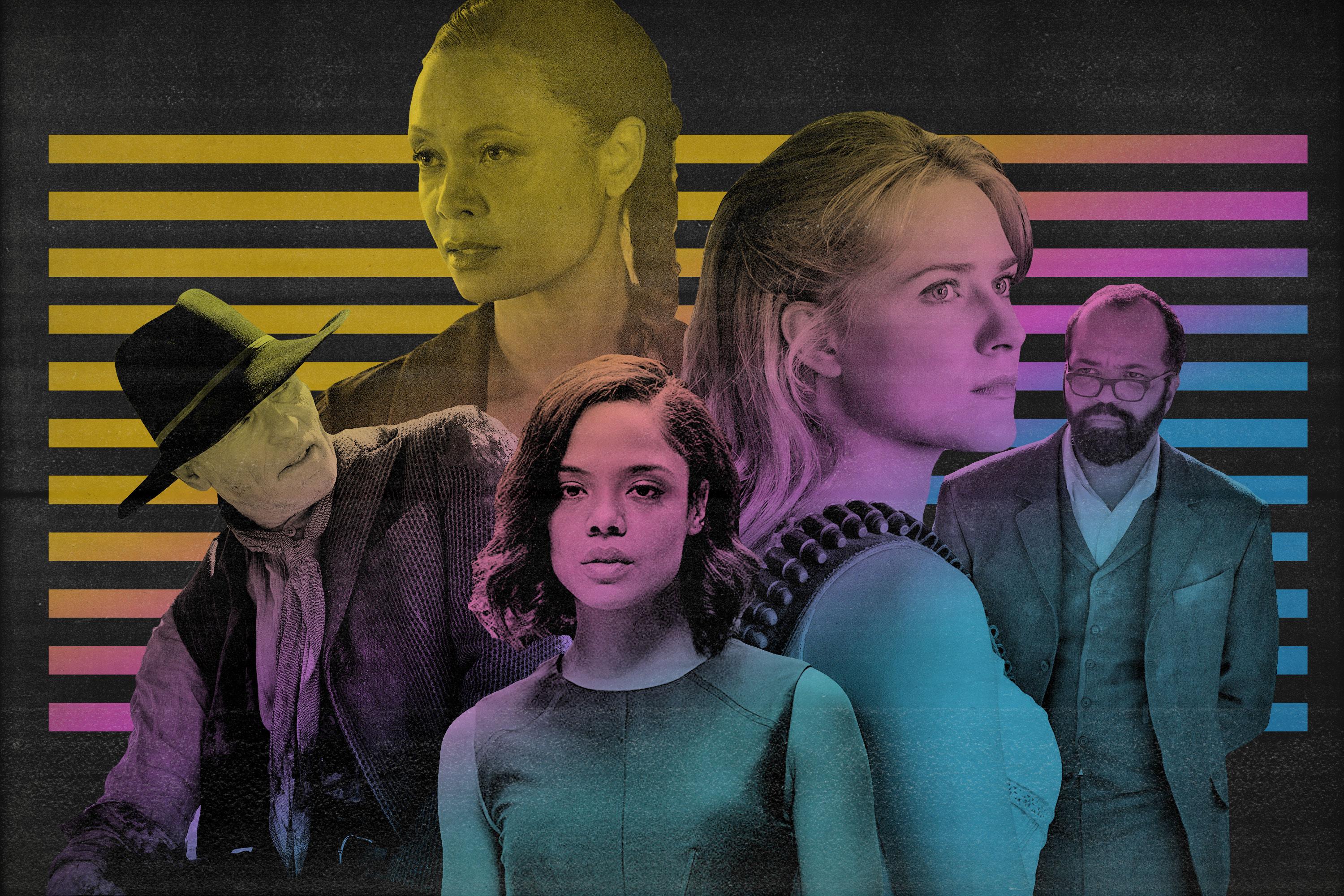
After a season of mystery, reveals, and twists, we still have some questions heading into the Westworld Season 2 finale. If the series is going to provide some answers, the last show of the season is the time to do it, right? Here are the questions our staffers hope that Sunday’s episode will answer:
Will Teddy come back?
Kate Knibbs: At first I was going to say that I’d like to know what Charlotte Hale’s whole deal is, but actually I have a more pressing question: Will I ever see my beloved bland-handsome cowboy Ken doll darling James Marsden on Westworld again? For storytelling purposes, it’d be a cop-out if Teddy’s death turned out to be temporary — but does that mean we have to say farewell to Marsden?
I hope the answer is “no,” and that the Westworld creators can really let J. Mars get it in the third season, possibly by implanting Teddy’s body with Ford’s consciousness and making him deliver baroque monologues while doing a bizarro Anthony Hopkins impression.
Will more parks be revealed?
Miles Surrey: The most pleasant surprise from Westworld’s Season 1 finale was its Shogun World tease. For a show whose ostensibly shocking machinations were pretty much anticipated by Reddit since the second episode — the finale finally revealed that William was the Man in Black in an earlier timeline, while the internet had unanimously agreed on this for more than a month — knowing there was a samurai-themed world to explore opened up an exciting array of possibilities. And as derivative and listless as this second season has been, the brief detours to Shogun World and the Raj were a refreshing change of pace. (If you’re not excited by robot samurai and Bengal tigers, what is wrong with you?!)
Delos is supposed to have six murder-inclined getaways, and I’d love a glimpse of a fourth park on Sunday night — if only for the series to goad me into checking out the third season. Westworld showrunners Jonathan Nolan and Lisa Joy have the next few seasons already planned out, so let’s just assume that whatever awaits in the Valley Beyond, the Forge, and all the other cheesily named finale destinations won’t lead to hosts making it out into the real world — at least not yet. In the meantime, give me Westeros World, or give me death.
How will the Akecheta story come to a close?
Andrew Gruttadaro: After “Kiksuya” — but even more so after the profound drudgery of “Vanishing Point” — it has become extremely clear to me that Akecheta is Westworld’s most redeeming quality. (It’s amazing how beneficial it can be to put emotional weight into a character’s backstory!) Not only is he interesting, complex, and easy to empathize with, but he may also be an important catalyst for the show’s future direction. He — not Dolores — is the host best equipped to lead the others to freedom. He may be the only one who actually wants to lead them to freedom. He is also the only one who innately understands that, as Teddy put it just before offing himself last episode, there’s no “use in surviving if we become just as bad as them.” The second season of Westworld, among way too many other things, has been about a clash between humans and hosts, but it feels like it will end with a clash between good hosts (Akecheta and Maeve) and an evil host (Dolores/Wyatt). The conflict with Dolores’s army wiped out much of Ghost Nation, but we are still yet to see the troops’ leaders come face to face. How will that end? And will the result hearken back to the story Dolores told Teddy about her father’s infected herd? In that allegory, Dolores sided with the decision to burn the herd; Akecheta would surely try to save it, and hopefully in the season finale, we’ll find out which method is truly righteous.
Why were there multiple timelines this season?
Alison Herman: Unbeknownst to the viewer until its final episodes, Westworld’s first iteration was split into several different chronologies: before the eponymous park opened, when cofounder Arnold was still calibrating his masterpiece, Dolores; Westworld’s early days, when a white-hat William tags along with his future brother-in-law for an experimental trip; and the present. The purpose of this split was clear: preserving the surprise of the twin reveals that Arnold and Bernard, plus William and the Man in Black, are the same person. Those reveals, in turn, helped to deepen our understanding of who the Man in Black and Bernard are.
There’s no such obvious rationale for dividing Season 2 into a present timeline and a two-weeks-earlier one. Ironically, this split has actually been laid out for the audience, if not always easy to discern in the moment, but it’s much more confusing. The mystery that’s meant to keep the viewer engaged is the appearance of a sea filled with host bodies, including the corpse of beloved cowboy Teddy. But it’s not a particularly compelling one — and when Teddy killed himself last week, it proved counterproductive: The knowledge that his death was coming drained the impact from the actual event. My hope is that the finale can offer a convincing storytelling explanation for why the two timelines were necessary, not just compulsory. Were we skipping between continuities because that’s what Westworld does, or because Westworld has a reason to do it?
Does Karl Strand matter?
David Shoemaker: Or, more broadly, does the Karl Strand timeline — the most “forward” timeline, the one starting with Bernard waking up on the beach and going through his interrogation — have any function other than framing the season? Strand looked like a potential Season 2 big bad until Dolores assumed the role (and Charlotte hung on to her share of it). But if Bernard really is Bernard in those scenes (and nobody else proves to be … somebody else) then what’s point of flashing forward other than to overcomplicate the narrative? Strand, Stubbs, Charlotte, Bernard, and, hell, even Betty Gabriel all seem more important than what we’ve gotten out of them so far. What’s their purpose?
What is real?
Danny Heifetz: The first big question of Season 2 came in the first scene of the first episode. Dolores and Bernard are in a debriefing interview, and Bernard tells Dolores that dreams aren’t real. “What is real?” Dolores asks.
“That which is irreplaceable,” Bernard says. There’s a lingering, awkward silence. “That answer doesn’t seem to satisfy you.”
“Because it’s not completely honest,” Dolores says.
The entire second season has been building to a full circle return to Dolores’s question. James Delos’s fish bowl, the ripped-off narratives in Shogun World, and the backups stored in the cradle have shown more ways to replace humans and hosts alike than we thought possible. The only way to tie together all these disparate threads — and for Westworld to stay irreplaceable — is to be completely honest.
Disclosure: HBO is an initial investor in The Ringer.

